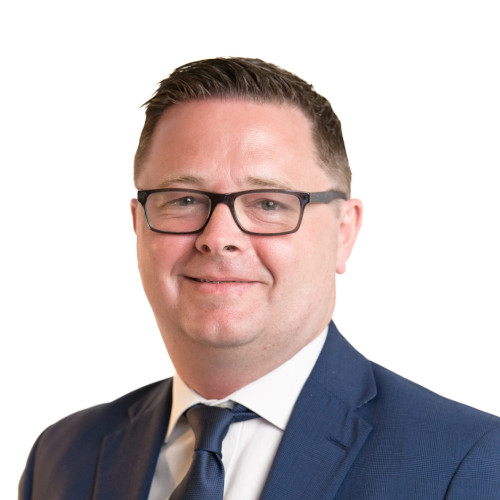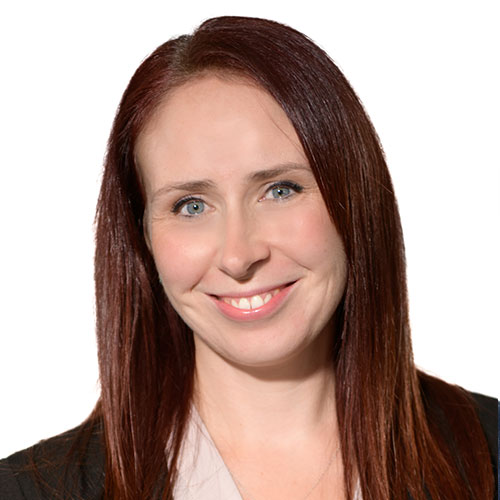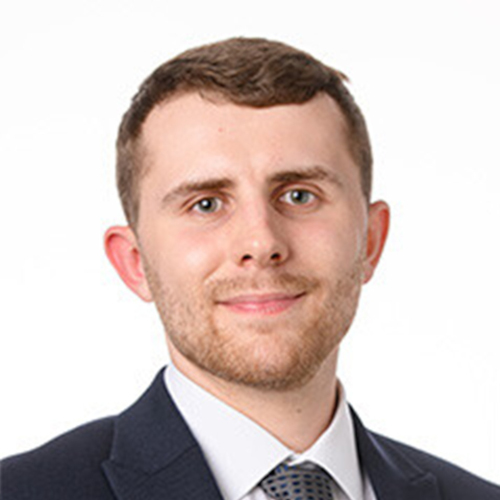Specialist General Dental Council (GDC) Defence Lawyers
The General Dental Council (GDC) is the independent regulator for dental professionals in the United Kingdom (UK). The term dental professional refers to dentists; clinical dental technicians; dental nurses; dental hygienists; dental therapists; orthodontic therapists and dental technicians. Anyone who wants to work in the UK as a dental professional must be registered with the GDC.
What do the General Dental Council (GDC) do?
The GDC’s primary functions include protecting patient safety and maintaining public confidence in the profession. In order to discharge these very important duties, the GDC not only registers qualified dental professionals, they also set professional standards and oversee dental education and training in the UK. In addition, the GDC is responsible for investigating complaints against dental professionals and where necessary, will take action against those who put patient safety or public confidence in the profession at risk.
How can Olliers assist with a GDC case?
The regulatory team at Olliers are all dedicated and experienced defence lawyers who are on hand to provide legal advice and assistance to dental professionals facing investigation and/or proceedings brought by the GDC.
Why choose Olliers for GDC cases?
Our experts have dealt with the full spectrum of cases, from allegations of poor performance to serious misconduct and dishonesty, as well as, cases concerning the health of the dental professional.
We provide tailored, expert representation for clients throughout the course of their dealings with the GDC, advising at all stages of the process, from initial referral to representation before the Interim Orders Committee (IOC) and, if necessary, at fitness to practise hearings before a committee convened by the Dental Professionals Hearing Service.
As professionals, we understand the anxiety that such matters can cause and we appreciate the potentially far–reaching consequences for your practice, your professional and personal reputation, the financial impact, as well as, the knock-on effect for your family life.
We work closely with our clients and take a pro-active approach which will generally include collating all relevant material, preparing submissions and making appropriate representations, as necessary, to ensure your practice can continue. We will also instruct relevant experts when needed and have close working relationships with a number of highly experienced and dedicated defence counsel to ensure you have the best representation at any hearings.
Our approach means that we have earned a reputation for meticulous preparation, sound advice and excellent results for those we represent. Therefore, if you are subject to GDC proceedings or find yourself under investigation by them or any other regulatory body, please get in touch and we can help you navigate the process.
What types of GDC cases can Olliers assist with?
The team at Olliers have assisted dental professionals at all levels with a wide range of regulatory matters, as well as, associated criminal proceedings. Our experience includes:
- Providing expert advice during the course of GDC investigations
- Attendance at GDC meetings
- Preparation of responses to Rule 4 correspondence
- Representation at Interim Orders Committee hearings
- Representation at fitness to practise hearings before committees at the Dental Professionals Hearing Service
- Applications for restoration to the Register following erasure
- Criminal investigations including representation at PACE interviews
What can I expect following a referral to the GDC?
Like many regulators, the GDC receives hundreds, if not thousands, of complaints/concerns each year but not all of them will result in an investigation, with around four in ten closed without any further action.
On receipt of a concern the GDC will assess whether or not it raises the question of impairment. As part of this process, the GDC will generally consider whether or not the information received gives rise to a concern that harm has been caused, or may have been caused to a member of the public and/or whether public confidence in the profession has been, or may have been undermined.
A matter will generally be referred for investigation if the concern (if proven) calls into question a professional’s fitness to practise. This tends to arise in cases involving alleged misconduct; deficient professional performance; criminal charges, convictions or cautions or adverse physical or mental health.
For those that do require investigation, as part of this initial stage, a dental professional will be notified about the concerns received and generally asked to provide proof of their indemnity insurance and to confirm employment details; this is because the GDC will write to your employers to ascertain if they have any information which may assist.
During this stage, the GDC will collate all relevant information and documentation which in clinical cases will include patient records and clinical advice or in health cases this may include medical or psychological reports, whilst in criminal cases, it is likely to include police reports and certificates of conviction.
When the information has been collected, a decision will then be made as to whether or not the case should be referred to the Investigating Committee comprised of case examiners including a lay person and a dentist or dental care professional.
If a case is referred, a dental professional will be invited to, but is not obliged to comment on the issues raised. You should always seek legal advice before providing any information on or response to the concerns, and it is worth highlighting that well-crafted submissions can result in matters being concluded sooner rather than later.
It is important to note that the case examiners role is not to rule on factual disputes about the allegations or evidence rather they must decide whether there is sufficient evidence to prove the allegation and determine if it is so serious that it must be referred to a practice committee. In reaching their decision they will consider:
- Whether there is real prospect of the facts, as alleged, being found proved
- Whether there is a real prospect of the statutory ground being established (misconduct/deficient professional performance/adverse physical or mental health/criminal convictions and cautions)
- Whether there is a real prospect of a finding of current impairment being made
The case examiners sitting on the investigating committee will make their decision based on all of the information before them. They will not hear any oral evidence and you will not be present when they meet. This is yet another reason why it is important to seek legal advice at the earliest opportunity so that tactical decisions can be made about appropriate submissions and detail of the same.
Having considered all of the relevant material, the case examiners have a range of options available to them including:
- Take no further action
- Adjourn for further investigations
- Issue a letter of advice
- Issue a warning letter which it may also direct be published on the GDC website
- Refer the case to one of the three Practice Committees for a hearing
- Request a signed undertaking
It is worth noting that the GDC will also consider whether the concerns raised require immediate action in the form of a suspension or restrictions being placed on your practice. As such, they can, if necessary, refer a case to an interim orders committee (IOC). This can be done at any stage.
Interim Orders Committee (IOC)
An IOC does not make findings of fact or determine any allegations which may be made against the dentist or dental professional. Their role is to consider whether or not it is necessary to make an order against the registrant on an interim basis in order to protect the public or where it is the public interest or in the interests of the registrant to do so.
IOC hearings are generally held in public, however they may be held in private where necessary to protect the personal life of the registrant or if it is in the best interests of the parties involved. The Committee may also choose to sit in private if they consider that the interests of justice are likely to be compromised by publicity of the case.
Powers of the IOC
An IOC can impose the following orders:
- No order
- Conditions for up to 18 months with six monthly reviews
- Suspension for up to 18 months with six monthly reviews
The IOC must consider the principles of proportionality when deciding on the most appropriate course of action. They must balance the need to protect the public and the wider public interest against the interests of the registrant bearing in mind the likely impact any order may have on them both professionally and personally. This is another reason why it is important to seek legal advice as soon as possible because robust submissions at an IOC could mean the difference between suspension and conditions or no order at all.
What happens if a case is referred to a Practice Committee for a hearing?
The Dental Professionals Hearings Service runs the hearings at which a Practice Committee (the committee) will decide if a registrant’s fitness to practise is impaired and what action, if any, is needed.
There are three Practice Committees, specifically:
- The Professional Conduct Committee – deals with allegations relating to misconduct and criminal convictions or cautions
- The Professional Performance Committee- deals with allegations relating to poor professional performance
- The Health Committee– deals with allegations relating to a registrant’s physical or mental health
The committees are independent of the GDC and hearings are generally held in public. A committee will usually be made up of three members and will be a mix of dental professionals and lay members.
Most hearings will have a legal assessor who advises the committee on points of law, but plays no part in decision making.
What is the procedure before a Practice Committee?
When a case is referred for a hearing, the parties will be expected to engage and co-operate so that appropriate arrangements can be made in relation to key issues such as the disclosure of evidence, witness requirements and the timetabling for the final hearing.
When it comes to the final hearing, it will usually begin with the Chair introducing themselves and their fellow committee members. The hearing will then deal with any preliminary legal arguments which generally involve submissions from the GDC and the registrant’s representative. The committee will take appropriate legal advice on the issues before retiring to reach a decision which will then be handed down in public and made available to the parties.
Once any legal arguments have been resolved, the Chair will then move on to confirm the registrant’s details including their GDC number. They will then be asked whether or not there are any admissions to the alleged facts. If all of the facts are admitted and so deemed proved, the case will move on to consider whether or not the dentist’s/dental professional’s fitness to practise is currently impaired.
If the facts remain in dispute, the case will move on to what is essentially a fact-finding stage. In summary, the GDC representative will outline the allegations and present any evidence they rely upon to prove their case which may involve calling witnesses. Your representative will have the opportunity to question witnesses on your behalf with a view to undermining the case against you.
You, again through your legal representative, will then call evidence in support of your case which will generally involve giving evidence yourself and calling witnesses. You may face questions from the GDC representative and the committee members.
Both sides will then have the opportunity to make closing submissions on the evidence before the committee retires to decide the facts. It is for the GDC to prove their case against a registrant and they must do so to the civil standard of proof, which means that they must show that the alleged conduct is more likely than not to have occurred.
If none of the facts are found proved, then the case will be concluded but if any are proved, the case will move to what is known as the impairment stage.
During the impairment stage, the GDC will set out their position on impairment with reference to the statutory grounds of misconduct, deficient professional performance, adverse health and/or cautions/convictions for a criminal offence. Your representative will then make submissions as to why your fitness to practise is not currently impaired and it will be a matter for the committee to decide.
If the committee decides that your fitness to practise is not currently impaired, then the case will end with no further action. If, however, they conclude that your fitness to practise is currently impaired then the case will move on to the sanction stage.
Sanctions in GDC cases
At this point the GDC will set out what sanctions they feel would be appropriate taking account of the particular circumstances of the case. Your representative will have the opportunity to make submissions about the proposed sanctions and present mitigation on your behalf.
The committee must then decide what, if any, would be the most appropriate and proportionate sanction to impose. Their decision will be handed down in public along with the reasons for it. The sanctions available to the committee include:
- Issuing a reprimand
- imposing conditions on your registration for up to three years
- suspending your registration for up to 12 months or
- erasure from the Register
The committee will have to decide whether any order they impose needs to be immediate or not and this will be done having heard submissions from both parties.
Olliers’ GDC experience
We have considerable experience in this sector and we regularly deal with the full range of fitness to practise issues, including:
- Clinical incidents
- Poor performance
- Criminal convictions/allegations
- Misconduct
- Dishonesty allegations
- Misuse of drugs or alcohol
- Fitness to practise concerns based on a professional’s physical or mental health
Funding
Olliers are able to assist you on either an hourly rate basis or we can be instructed on an ‘agreed fee’ in order to provide peace of mind that costs will not escalate beyond what is agreed. We are happy to provide a tailored quote for your individual case. We also have experience dealing with many of the leading insurance providers and medical defence organisations so are happy to discuss your needs with them to ensure that you get the best representation from your legal partner of choice.
Should you require assistance with any matter brought by the GDC please contact our specialist professional disciplinary team to discuss how Olliers can assist.




